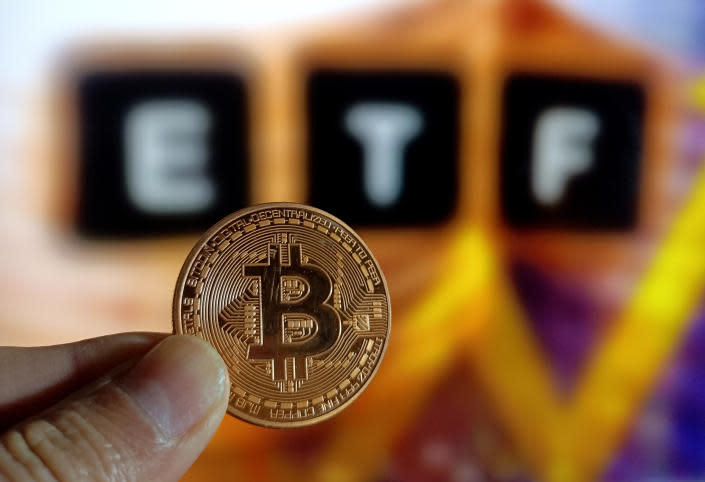

European stock markets were subdued on Thursday after a day of heavy losses the session before amid heightened expectations that interest rates will be cut later than previously hoped.
In London, the FTSE 100 (^FTSE) was 0.1% down after opening, while the CAC (^FCHI) gained 0.1% in Paris, and the Frankfurt DAX (^GDAXI) was trading flat.
“European markets posted their third successive daily decline as markets continued their New Year hangover, after the pre-Christmas euphoria of what was perceived as a December rate pivot from the Federal Reserve,” Michael Hewson of CMC Markets said.
“The FTSE 100 had its worst day since August sliding to its lowest levels since late November, dragged down by a combination of poor performance from real estate, basic resources and energy after disappointing Chinese economic data, and the prospect of rate cuts getting pushed further into 2024.
“In the last few days, we’ve seen a concerted effort from assorted central bankers in Europe, as well as the US to dial back the expectation of early rate cuts, while a surprise uptick in UK inflation and some solid US retail sales numbers torpedoed the idea that we would see early rate cuts in March.”
Across the pond losses were fairly contained last night despite the sharp rebound in yields. The S&P 500 (^GSPC) slipped 0.6%, and the tech-heavy Nasdaq (^IXIC) was 0.6% lower. The Dow Jones (^DJI) lost almost 0.3% on the day.
The US dollar which initially rallied strongly to one-month highs, gave up most of its gains to close flat on the day.
Live9 updates
Watch: How does inflation affect interest rates?
Download the Yahoo Finance app, available for Apple and Android.








